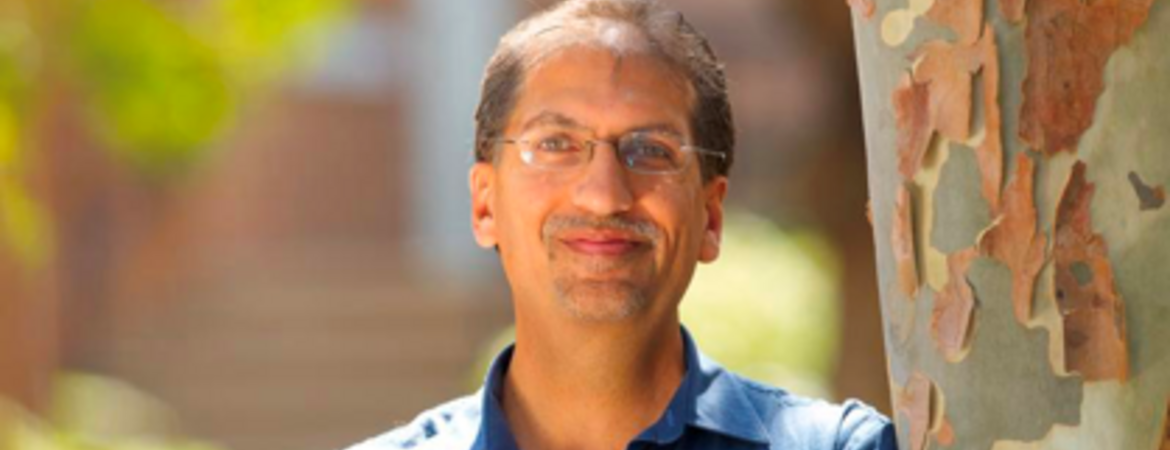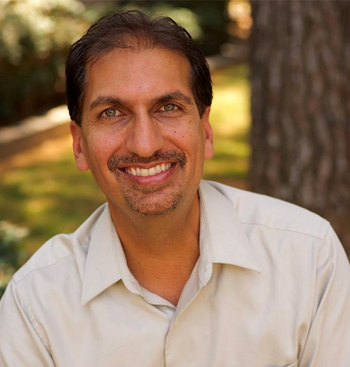Even before Frank Vahid became an educator, improving how students learn had long been on his mind.
A professor of computer science and engineering at UC Riverside for almost 30 years, Vahid introduced new techniques to merge technology and learning in his classrooms.
Vahid will now take what’s he’s learned to a national platform as deputy director of digital enabled teaching and learning in higher education for the Bill and Melinda Gates Foundation. He begins his new position Jan. 16.
“I’ve been really excited to try to see how education can be reformed so the fact that it’s a big focus of the foundation was really attractive to me,” Vahid said.
His interest in the topic goes back to his middle and high school years when Vahid remembers wondering in math classes if what students were learning could be applied to their lives. As a 22-year-old, Vahid started a nonprofit called Real Math, offering tips to high school teachers. He later founded College Student Advocates, a nonprofit that works to assist undergraduate students, particularly those from less privileged backgrounds.
At the Gates Foundation, Vahid will work on finding ways to help college students succeed and instructors be more effective. His role encompasses everything from developing course content to analyzing data to providing better digital tools in higher education.
“Frank will lead a team of amazing program officers and staff in leveraging the power of data and technology to improve teaching and learning,” said Patrick Methvin, the foundation’s director of pathways and postsecondary success strategy, in a December 11 LinkedIn post. “This work will build on advances in evidence based teaching practices and technology to offer students more motivating and engaging learning experiences.”
Vahid said the new position was appealing to him due to the Gates Foundation’s role in tackling global issues such as poverty and health. Since its inception it has given billions of dollars in grants.
“The Gates Foundation is focused on helping everybody achieve a healthy and productive life and a big part of that is education,” Vahid said.
And just as UCR has made a social mobility for students from low-income or minority backgrounds a priority, the foundation seeks to improve college outcomes for Black, Latino, Indigenous, and low-income students, he said.
At UCR, an important issue for Vahid was improving the retention rates for first-year computer science students, which was at about 65% when he joined the faculty. That rate has now increased to 90%, which Vahid attributes to incorporating interactive learning and effective instructors who are warm and supportive.
In 2012, Vahid helped develop web-based textbook replacements that used learning questions, animations, and interactive tools, co-founding zyBooks. The company was acquired by academic publisher John Wiley & Sons in 2019 and its coursework is now used by over 500,000 students a year at over 1,000 colleges and universities.
His work in developing interactive content led to the Gates Foundation asking him to sit on review panels for some of their projects. Two years ago, Vahid sat on a panel with Bill Gates and spoke with him about how zyBooks could be applied to math learning. His relationship with the foundation led to them reaching out when the position opened up.
Vahid said he’s enjoyed being at UCR, likening the computer science and engineering department to a start-up when he joined with only a small number of faculty members and a mindset of building a modern department.
He said he’s grateful for the university’s support for his work over the years, which included providing zyBooks’ first office space in downtown Riverside.
While he’s excited about his new position, Vahid will miss working with students.
“That was one of the hardest parts of this decision to go to Gates, knowing I would no longer be able to be in the classroom,” he said. “We have some really good students. It’s just a real pleasure to be able to interact with them when they’re young and trying to grow themselves. It’s really kind of a privilege to be part of their lives.”





